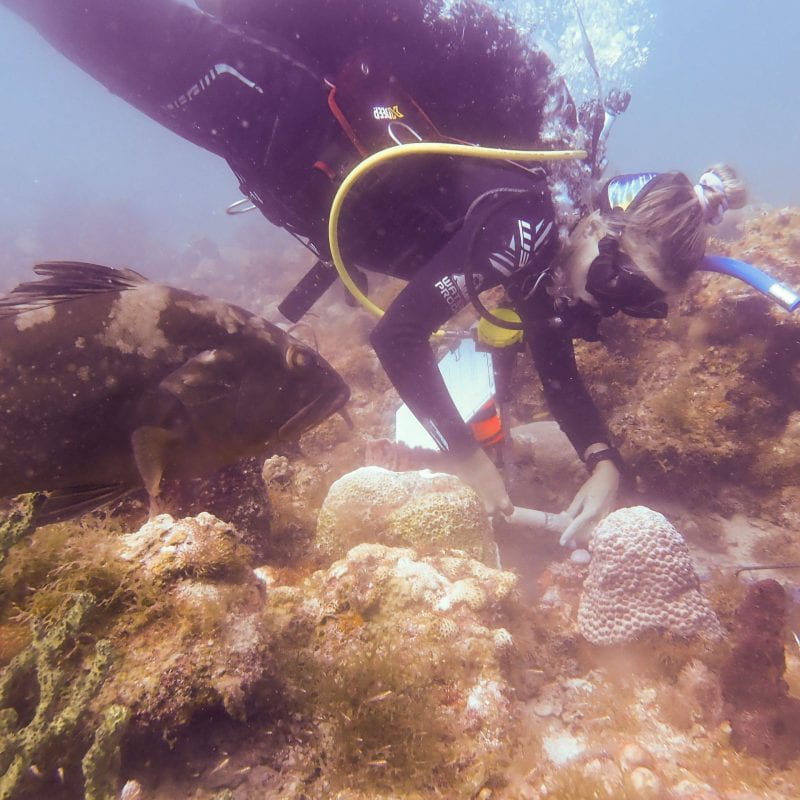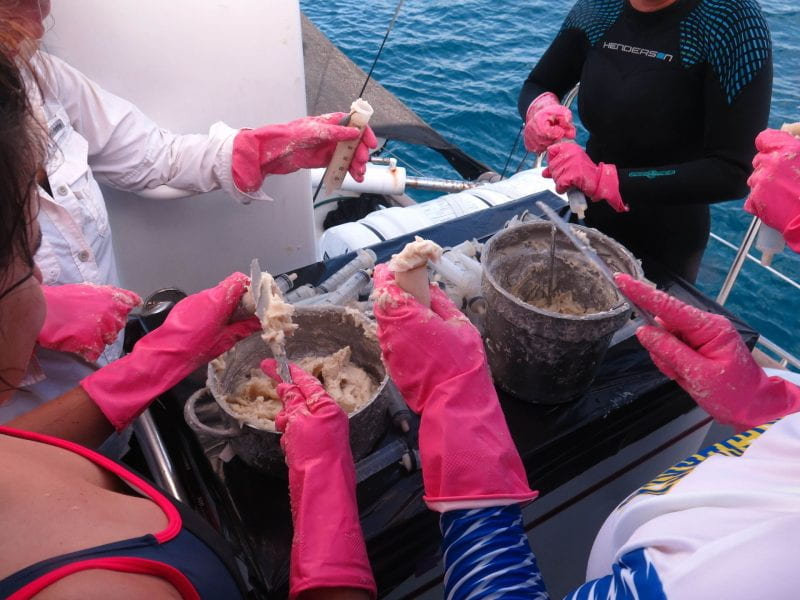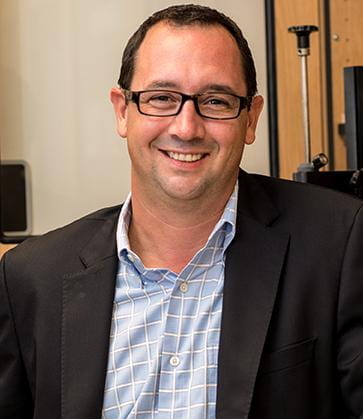
Ken Dawson-Scully, Ph.D., associate provost and senior vice president for the Division of Research and Economic Development
$145 million in active grants. 170 grants. 100 different funding agencies.
“All of those numbers are record highs for the university,” said Ken Dawson-Scully, Ph.D., associate provost and senior vice president for the Division of Research and Economic Development (DoR). “We expose our students to genuine research, where they’re developing knowledge rather than just learning knowledge.”
NSU is recognized by the Carnegie Foundation as an R2 Doctoral University with high research activity. In 2022, the National Science Foundation ranked the university 70th out of all private universities in the United States for its research efforts. And, for the first time in the school’s history, NSU received a U-Rise grant from the National Institute of General Medical Sciences, a division of the National Institutes of Health. This $1.5-million grant funds opportunities for undergraduates to work in research labs and get paid for doing so.
In addition, research from NSU faculty and staff members and students was published 750 times during the last year—a 35 percent increase in publications from the previous year.
“The colleges, the faculty and their students, and the staff are the engines of research for the university,” said Dawson-Scully. “I’m just the person who gets to brag about all these wonderful things and gets to serve these individuals through research administration while bringing researchers together, internally or with other companies and institutions looking for collaborators.”
Dawson-Scully joined NSU in 2021. Prior to his current role, he was a professor and administrator at Florida Atlantic University (FAU). In his FAU lab, he conducted research on fruit flies to explore how to protect the brain from different types of neurodegenerations and stress. He also served as the head of institutional partnerships at the Max Planck Florida Institute for Neuroscience, where he developed programs partnering the world-class researchers at the institute with student trainees from FAU.
“I got to the point where, instead of developing those programs, I was managing them,” he said. “An opportunity came along at NSU to be in a leadership position and start building again. When I moved to Florida in 2008 from Canada, I didn’t know about the research profile of NSU. But, when I applied for the position in 2020, NSU had grown so rapidly, and put such an enormous investment into research, that my mind was blown, and I was excited to be a part of its exponential growth.”
The DoR administers research for the university. This includes—but is not limited to—handling patents and copyrights, assisting faculty members in finding and applying for grants, ensuring that projects are compliant, conducting clinical research, and bolstering the university’s research infrastructure at the Center for Collaborative Research.
“Our core facilities are available to every faculty and staff member within the university, and we even offer our services to the community,” Dawson-Scully said. “When research comes into the university, it helps build a better environment for teaching for our faculty and a better environment for learning for students.”
In the Campaign for Preeminence, NSU has a goal of raising $500 million in cumulative research funds by 2025. As of early March, more than $418 million—84 percent of the university’s goal—has been raised. The university continues to be on an upward trajectory for growth in research, and Dawson-Scully and his team are looking for ways to continue accelerating that growth.
NSU Health is one of the university’s research accelerators. The initiative brings the university’s clinical practices under one umbrella to enable NSU to better serve the community, give students better experiences, and increase the university’s research infrastructure.
One example of how NSU Health is accelerating research in in the work of Eduardo Locatelli, M.D., M.P.H. He sees patients who suffer from ALS, also known as Lou Gehrig’s disease. He also runs clinical trials on new drugs that have the potential to stave off this horrible disease, and one of the drugs he was working with recently received FDA approval. The medication has the potential to double the life span of patients diagnosed with ALS.
“Locatelli’s research not only increases our clinical research profile, but also brings students at the undergraduate and graduate levels who are working with this cutting edge, clinical research,” Dawson-Scully said.
The Alan B. Levan | NSU Broward Center of Innovation is another entity that increases the university’s research capabilities. Faculty and staff members and students interact and innovate with everything from phone apps to interacting with NASA and the space foundation. The Levan Center is attracting large grants from federal agencies, as well as local, state, and county sources.
Dawson-Scully established a Changing Lives scholarship for undergraduate students who want to pursue research. Donors can also create a scholarship fund or programming endowment.
“It’s always a positive thing to be able to donate, because it’s used toward creating knowledge and giving our students that edge,” Dawson-Scully said.
For more information on research at NSU, please contact Alissa Hechter, Assistant Vice President of Development & Alumni Engagement, at (855) 792-2230 or ah833@nova.edu
Posted 07/02/23
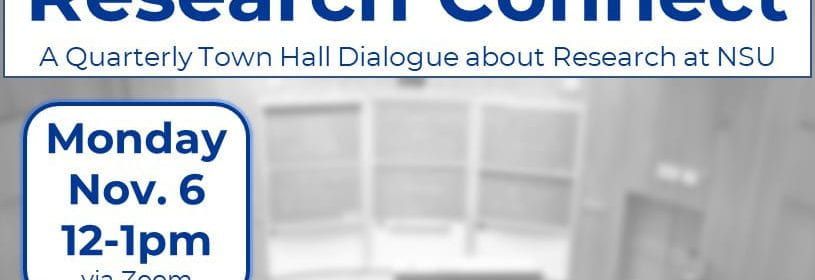
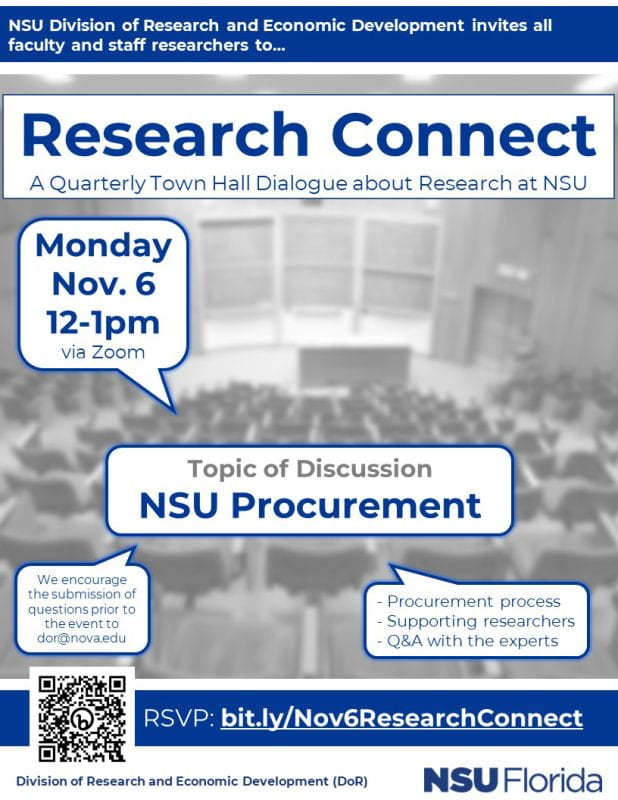 All faculty and staff researchers are invited to join the NSU Division of Research and Economic Development for a dialogue related to research at NSU via Zoom. Our next Research Connect quarterly town hall meeting will be on Monday, Nov. 6, from noon to 1 p.m.
All faculty and staff researchers are invited to join the NSU Division of Research and Economic Development for a dialogue related to research at NSU via Zoom. Our next Research Connect quarterly town hall meeting will be on Monday, Nov. 6, from noon to 1 p.m.
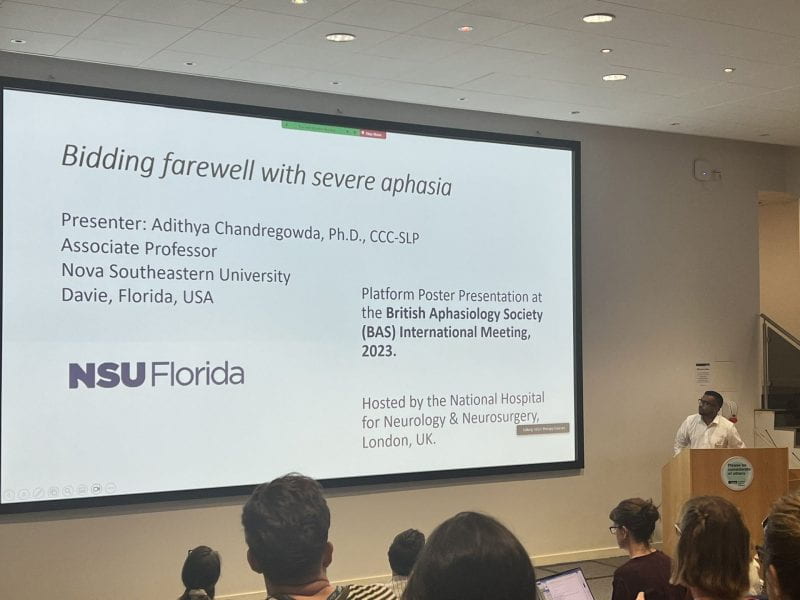
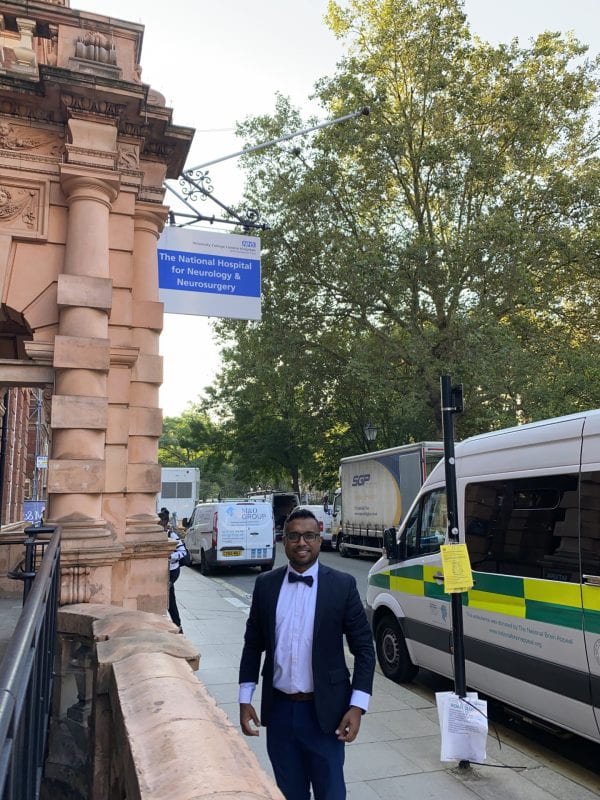
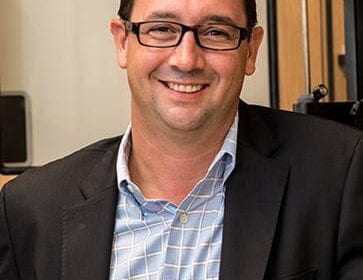



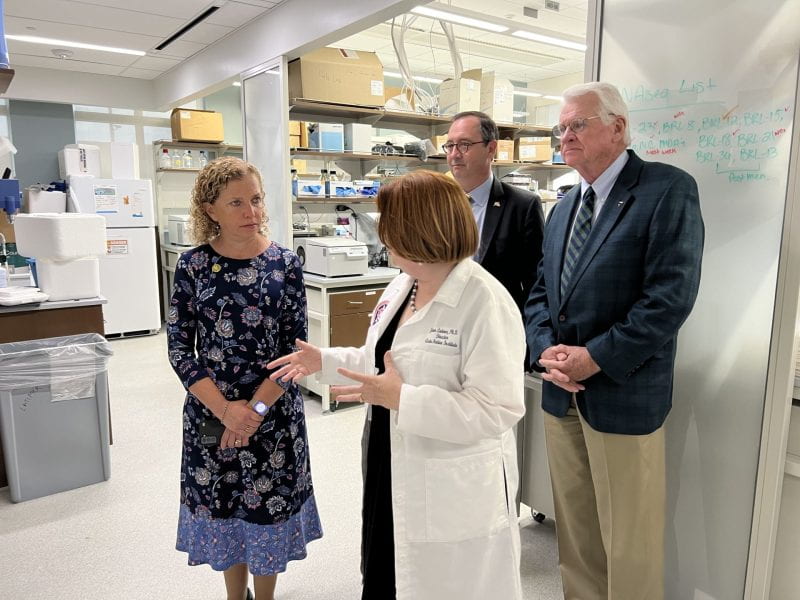
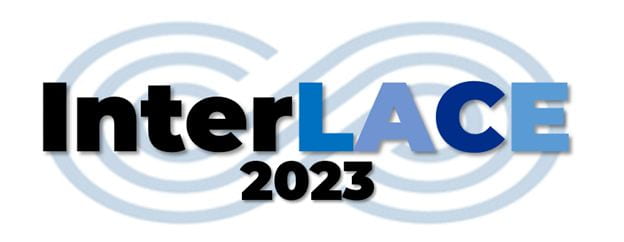

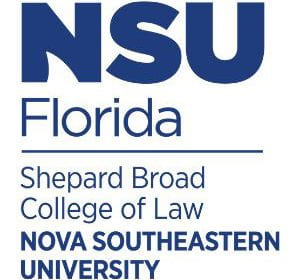
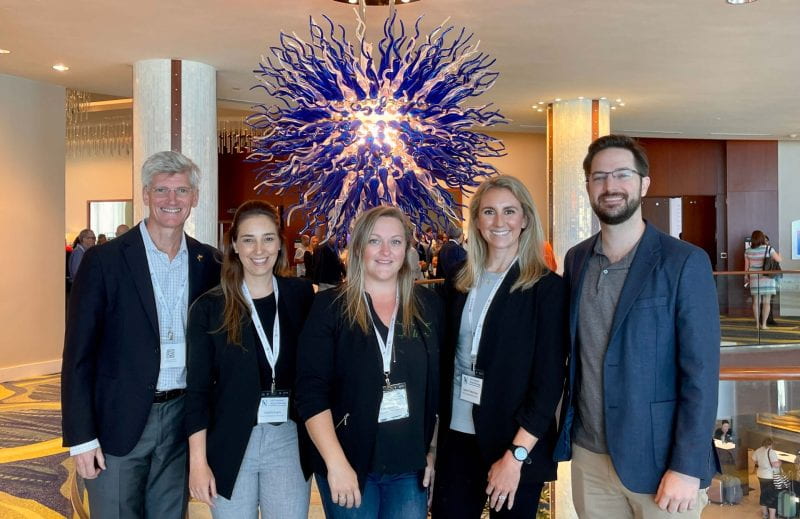 The Neuroscience Institute team recently attended the annual Northeastern ALS Consortium (NEALS), the largest ALS Conference in the country with more 700 attendees this year from Nov. 1 through Nov. 3.
The Neuroscience Institute team recently attended the annual Northeastern ALS Consortium (NEALS), the largest ALS Conference in the country with more 700 attendees this year from Nov. 1 through Nov. 3.
